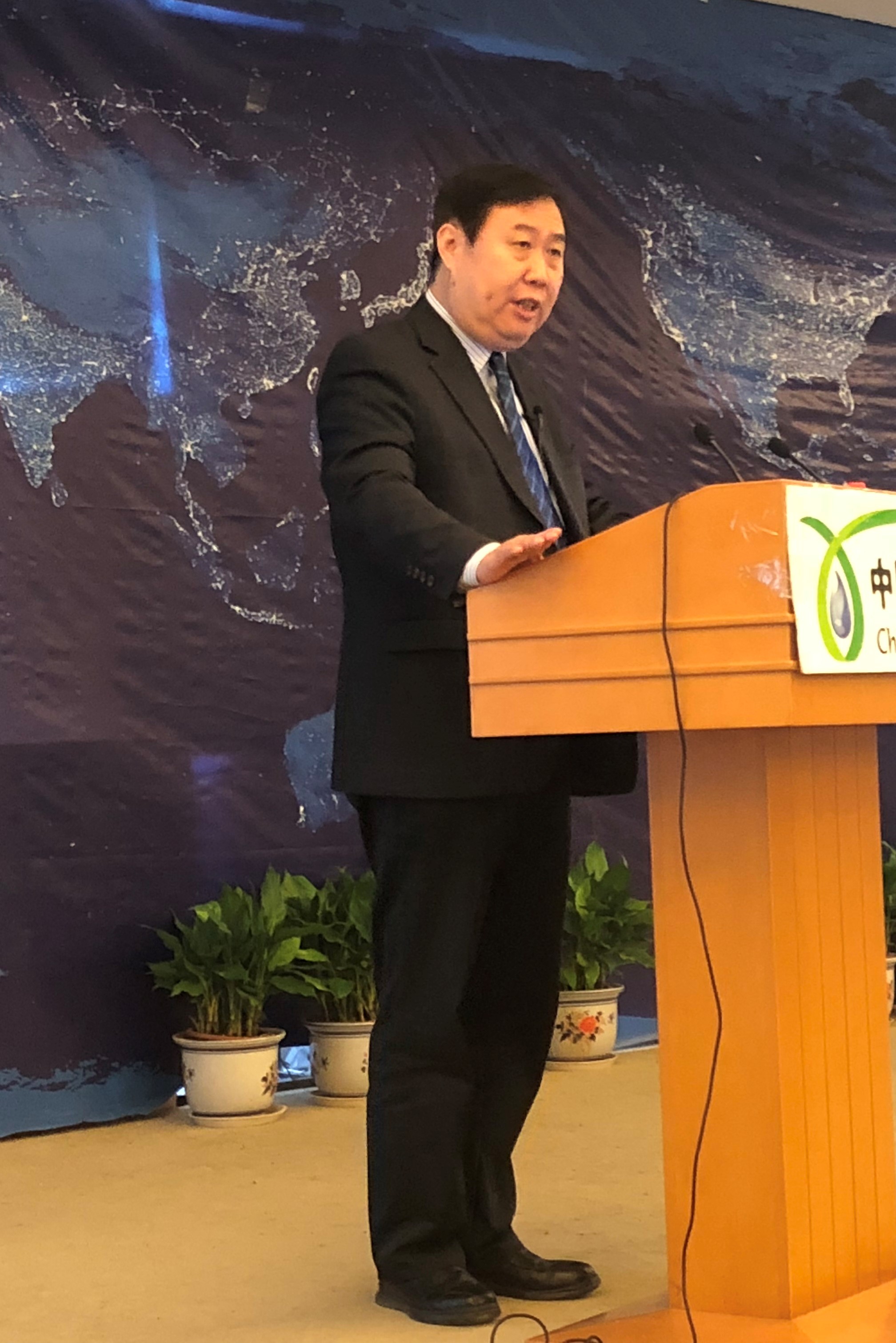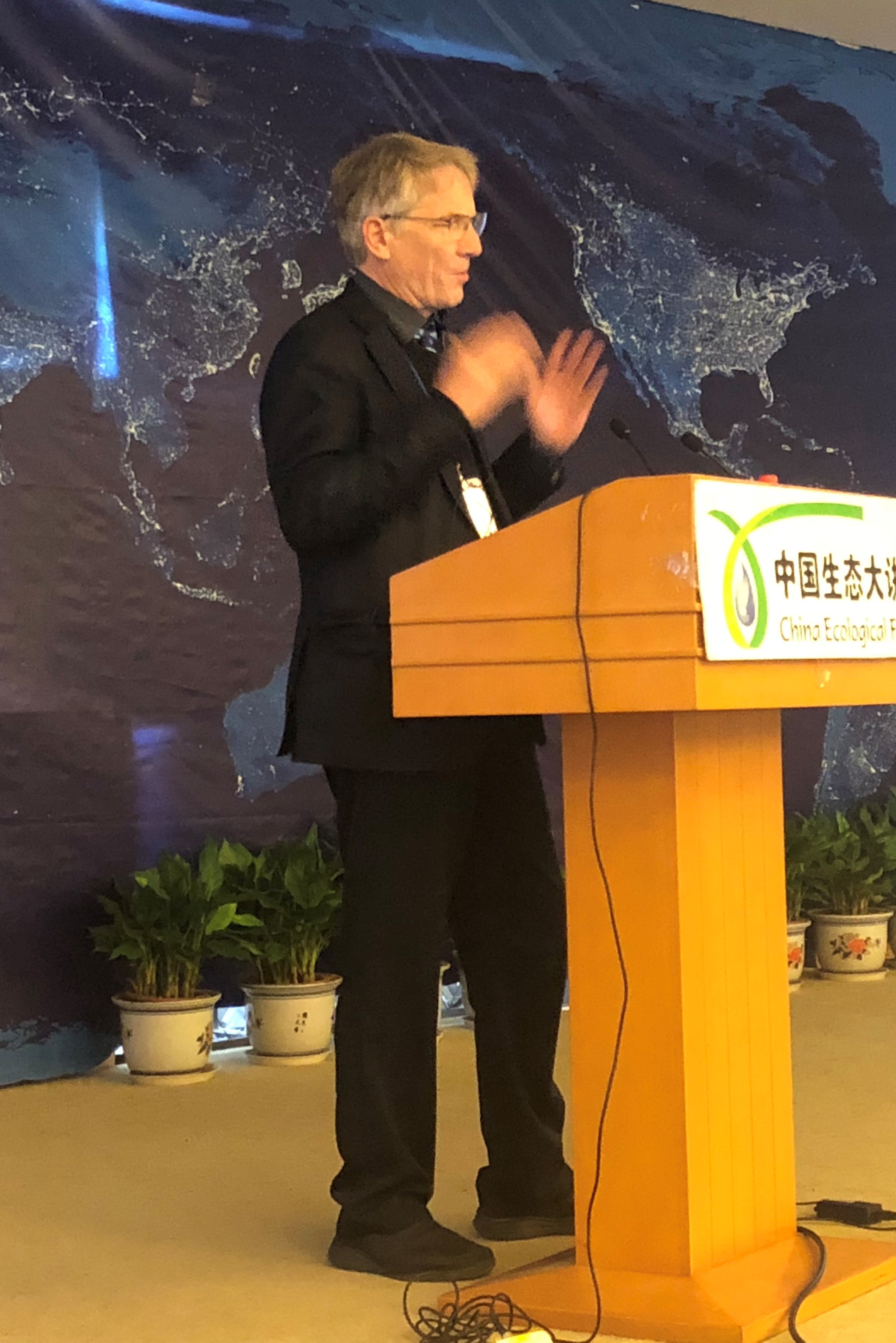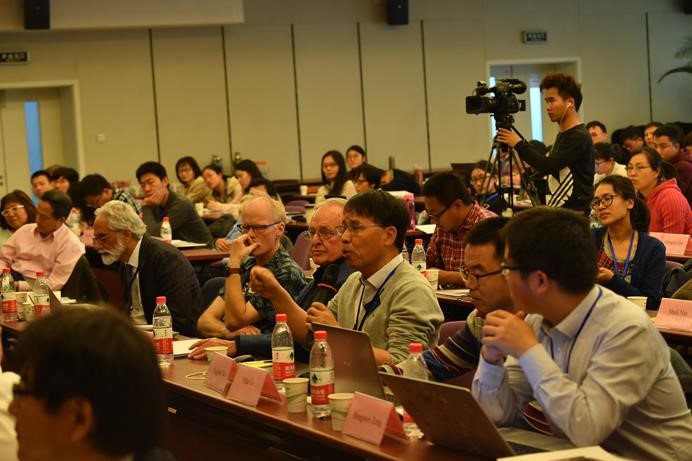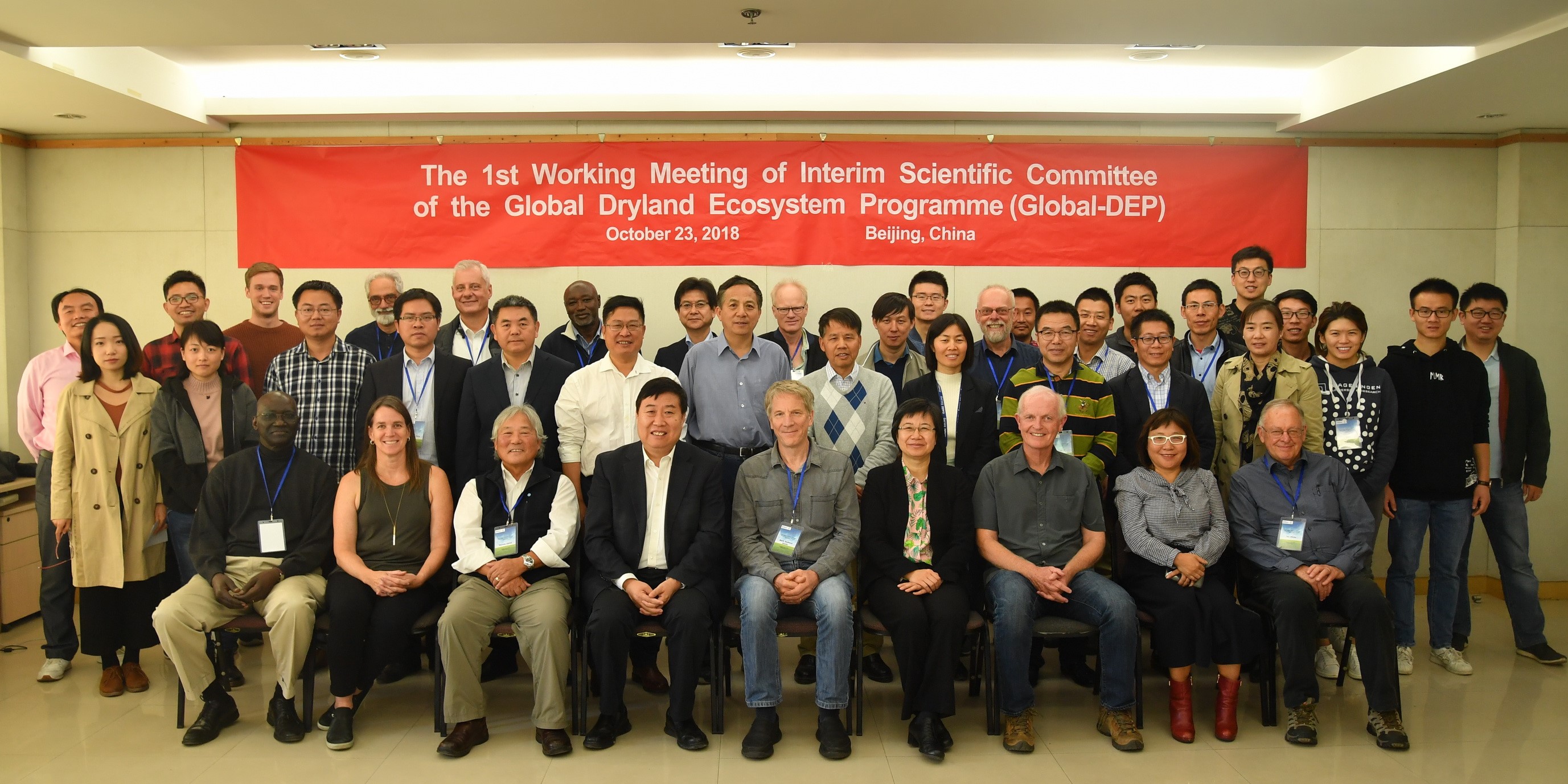| Location: Home>News>Events |
| International Workshop of Global Dryland Ecosystem Programme held in Beijing |
|
|
The International Workshop of Global Dryland Ecosystem Programme (Global-DEP) was successfully held on 21-22 October 2018 in Beijing. This workshop was co-chaired by Prof. Bojie Fu from the Chinese Academy of Sciences (CAS) and Dr. Mark Stafford Smith from the Commonwealth Scientific and Industrial Research Organization (CSIRO), Australia. It was jointly convened by four institutes of CAS, that is, Research Center for Eco-Environmental Sciences (RCEES), Institute of Geographic Sciences and Natural Resources Research (IGSNRR), Institute of Remote Sensing and Digital Earth (RADI), and University of Chinese Academy of Sciences (UCAS), and High Education Press. The workshop brought participants from different research institutes and universities together to share and exchange research progresses on dryland ecosystems and their services and thus greatly promoted scientific research and international cooperation related to global dryland ecosystems. About twenty experts from China, US, Australia, Greece, Senegal, Japan, Switzerland attended this workshop and presented their views and research results on dryland ecosystems, among whom twelve are the members of Global-DEP Interim Scientific Committee. Over thirty Chinese members of Global-DEP work groups and ninety researchers and graduate students participated in this workshop. The workshop was organized as an event of China Ecological Forum and started with a one-day training targeting at young scientists and students on 21 October. Prof. Lu Zhang and Prof. Tingbao Xu from Australia and Prof. Alan Knapp and Prof. Melinda Smith from US delivered 90-minute lectures respectively on that day. The themes of their lectures include basic principles of ecohydrological modelling through coupling carbon and water cycles, modelling and analysis of climate using ANUSPLIN–China 60 years, climate change experiments in semi-arid ecosystem, and understanding the impacts of global climate change by data synthesis and network ecology, with the aim to broaden the horizons of young researchers. This training was facilitated by Prof. Xiubo Yu, Secretary General of the Global-DEP Interim Scientific Committee and Secretary General of Chinese Ecosystem Research Network (CERN). The workshop was officially inaugurated on the morning of 22 October 2018 with an opening ceremony chaired by Prof. Yanfeng Wang, Vice President of University of CAS. In his opening remarks, Prof. Bojie Fu pointed out several key facts: drylands cover 41% of the land surface, produce 44% of the crops and support over 250 million people for their living; one of third of biodiversity hotspots exist in dryland and they also provide habitats for 28% of endangered species; however, some 10-20% drylands in the world are facing the degradation. He emphasized the significance of scientific research on dryland ecosystems. He indicated China is among the first to conduct research and management on drylands and degraded lands and has gained rich experience to take a lead in this field. Afterwards, Prof. Fu and Dr. Mark Stafford Smith in their capacity as co-chairs of Global-DEP Interim Scientific Committee delivered keynote presentations that elaborate the aims, main tasks, and implementation framework of Global-DEP and how to enhance dryland ecosystem management from the perspective of Future Earth, respectively.
Photo 1:Bojie Fu and Mark Stafford Smith made keynote speeches. In the session of thematic presentations, seventeen invited speakers shared their research progress, important results and experience from the perspectives of ecosystem dynamics and driving mechanisms, ecosystem structure and functions, ecosystem services and human well-being, and ecosystem management and sustainable livelihoods in global drylands. Some major case studies from around the world were presented to the audiences, such as the modeling of and trade-off between environment restoration and human water consumption in Ebinur Lake, a long term experiment on semi-arid ecosystem sensitivity to precipitation extremes in middle parts of US, sustainable land management in Ethiopia, evolution of value, science and technology in the Heihe River Basin, and multi-scale analysis of the ecosystem services in the Loess Plateau in China. These presentations led to a heated discussion among the audiences towards the importance of ecosystem management, the complexity of social and ecological systems, and the challenges to achieve sustainable development goals in dryland regions.
Photo 2: Q&A at workshop A media release on the Dryland Remote Sense Dataset in China was made by Prof. Bingfang Wu from RADI after the keynote presentations in the morning. Researchers could access to data through ftp://ftp.cropwatch.com.cn (User name & password: globaldep). The Global-DEP, proposed by Prof. Bojie Fu and Dr. Mark Stafford Smith, was formally approval as a key international cooperation project by the International Cooperation Bureau of CAS in August 2017. Its scientific goal is to provide a platform for global research collaboration on dryland ecosystems with its Science Plan that defines key scientific issues and priority areas for future research. The Secretariat of Global-DEP Interim Scientific Committee is hosted by the Synthesis Research Center of CERN at the IGSNRR. Following the international workshop, the First Working Meeting of Global-DEP Interim Scientific Committee was held on 23 October to discuss the overall framework and research priorities of Global-DEP Science Plan. Main tasks for 2019 were proposed, focusing on undertaking regional consultation workshops on typical drylands in Central Asia, Mediterranean Region, Africa, America and Australia, respectively. Several experts including Dr. Mark Stafford Smith took part in a field excursion to dryland ecosystems and CERN’s Ansai Agricultural ecological station on the Losses Plateau from 24 to 26 October.
Photo 3: Group photo of the First Working Meeting of Global-DEP Interim Scientific Committee.
Source: State Key Lab. of Urban and Regional Ecology, RCEES Global-DEP Interim Scientific Committee Secretariat |



